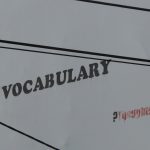12 typical mistakes Polish people make when they speak English
Typical mistakes Polish people make when they speak English generally result from a linguistic phenomenon known as crosslinguistic influence (CLI).
In this post, I briefly define and describe the phenomenon of CLI. Following that, I provide a more general assessment of how Polish speakers of English fare in the areas of phonology, grammar, syntax (word order) and vocabulary choice.
In the second part of this post, I reveal 12 typical mistakes Polish people make when they speak English. I follow this up with a brief analysis of the crosslinguistic transfer processes which cause Poles to make these mistakes.
After revealing the 12 typical mistakes, I offer some advice as to how Polish people can avoid making mistakes caused by crosslinguistic influence.
Before I discuss the issues Polish learners of English face, I must extend a big thank you to Dr Marta Łockiewicz and Martyna Jaskulska from the University of Gdańsk. Their eye-opening article on the impact of linguistic transfer on Second Language Acquisition encouraged me to write this post.
POLISH AS L1, ENGLISH AS L2 - THE IMPACT OF LINGUISTIC TRANSFER ON POLISH PEOPLE’S ACQUISITION OF ENGLISH
I started teaching English in Poland in September 2006, and continue to teach Polish students today.
Owing to my fairly decent knowledge of the Polish language, I'm familiar with the types of errors Polish learners of English make due to the manner in which they translate word for word from Polish into English.
Polish learners of English encounter a great number of difficulties, many of which are explained by the concept of crosslinguistic influence, also known as negative language transfer or interference.
Crosslinguistic influence is the language interference that occurs when speakers and writers transfer items and structures from their first language into the target language. As Polish and English belong to two completely different language families, Polish students generally can't get away with literally translating their mother tongue into English.
For example, a Polish learner might say “I very like strawberries” (“Ja bardzo lubię truskawki”). This is a clear instance of word for word translation from Polish into English.
Instead of “I very like strawberries”, Polish learners of English should produce either of the following:
- “I like strawberries VERY MUCH"
- “I REALLY like strawberries”
To acquire the chunk very much, a typical Polish learner of English would need a great deal of auditory input and immersion in the language to consistently avoid saying "I very like".
HOW DO POLISH LEARNERS OF ENGLISH FAre IN THE AREAS OF PHONOLOGY, GRAMMAR, WORD ORDER AND VOCABULARY CHOICE?
Before we look at 12 typical mistakes Polish people make when they speak English, let’s first of all dive into a general overview of some of the phonological, grammatical and lexical differences between Polish and English.
Phonology
The most common errors Polish learners of English make are not just grammatical and lexical, but also phonological. Polish learners of English at elementary levels must despair at the inconsistent relationship between spelling and pronunciation.
Stress
Given the common penultimate-syllable stress of the Polish language, the sheer volume of stress patterns in English confuses Polish learners of English.
Poles may pronounce all words with almost equal stress, and full vowels instead of schwa (ə) in words like banana and teacher. They often pronounce function words such as and, as and a, in their strong forms in all contexts.
Linking
As an Englishman, I’m well accustomed to ‘eating my words’. In other words, I link everything together with, for example:
- Vowel glides - combining a vowel at the end of a word with a vowel at the beginning of the following word. For example ‘be a’ sounds more like ‘be yuh’ with the “y” sound separating the vowels ‘e’ and ‘a’. Furthermore, Polish does not have linking /w/ between chunks such as go away. Therefore, Polish learners of English tend to pronounce the two words in go away separately.
- Consonant to vowel glides - Combining a consonant at the end of a word with a vowel at the beginning of the following word. This phenomenon is known as catenation. Three examples:
1. have an apple (havənapəl)
2. for a (fərə)
3. keep up - ‘keep up’ sounds more like ‘kee pup’ whereby the final consonant of ‘keep’ [p] joins the initial vowel sound of the next word [u]. As a result, ‘keep up’ sounds like a single word.
Vowels
Given that Polish has a total of eight vowels, compared to the 20 distinct vowels of English (short vowels, long vowels and diphthongs), vowel sounds represent an area of significant difficulty for Polish learners of English.
Examples of confusion include:
- Schwa and /ɪ/: are regularly replaced by full vowels due to the absence of weak vowels in Polish
- The lack of open vowels (only one) in Polish: For example, /a:/ may be confused with /æ/, causing the mispronunciation of words such as rather
Intonation
Intonation patterns in English and Polish are wildly different.
Many Polish speakers of English claim that English intonation sounds exaggerated. This leads to considerable resistance to imitating English intonation patterns for fear of sounding silly.
English wh-questions, for instance, typically have a falling pitch. Many Poles, however, opt to use a fall-rise pattern.
GRAMMAR
Here's a selection of the typical grammatical mistakes Polish people make when they speak English:
- Reliance on inversion when not required - a Pole might say "Do you know where is the train station?" However, is should be shifted to the end of the question: "Do you where the train station IS?"
- Countable/uncountable nouns - the concept of the uncountable noun is difficult for Polish speakers of English to fathom. Therefore, they might say something like: "The informations was/were really useful." because information is an uncountable noun. As information is an uncountable noun, the correct form is: The information was really useful
- Wrong verb forms - for example, "I would like to found" and "I want to started"
- Multiple negation - Polish requires multiple negation, whereas double negatives etc. are generally discouraged in English. Hence, a Pole might say: "Nobody doesn’t understand nothing" instead of the more acceptable: Nobody understands anything
- Past tenses - The present perfect tense is a strange concept for Polish speakers of English. Polish requires a past tense in cases where English requires a present perfect. For example: "Were you ever in Japan?" (for "Have you ever been to Japan?") and "I saw that film" ("I’ve seen that film" is correct)
- Reliance on the present continuous tense due to Polish only having one present tense - "I’m working as teacher" ("I work as a teacher" is better)
- Infinitive as -ing forms - English -ing forms usually correspond to Polish infinitives, so a Polish person might say "I enjoy to play chess" instead of the correct "I enjoy playing chess"
- Articles - There are no articles in Polish. Hence, many learners use them at random or overuse them. * He is the doctor (a is required instead of the) / * He lives in the Warsaw (no article required)
- Prepositions - the Polish preposition na, for example, can usually be translated to on in English, but not always:
* AT Christmas - I will see John AT Christmas
* AT the airport - I'm AT the airport
Word order
Polish has a much freer word order than English, which leads to difficulties in the following areas:
- Adverbial position - “I don’t speak well English” (“I don’t speak English WELL" is correct)
- Prepositions - Final-position prepositions are more common in English. Therefore, Polish learners of English might produce an utterance like “At what are you looking?” (“What are you looking AT?” is right)
- Place names and position - Many Polish learners of English avoid the use of there is/are, instead opting for literal translations such as “In London are”. An example with There are: “There are many huge parks in London”
VOCABULARY
Compared with word order, phonology and grammar, vocabulary selection is usually not such a troublesome area for Poles. Nevertheless, here are some traps which some Polish learners of English fall into:
- English pairs of words with only one Polish equivalent - Pairs such as clock and watch, and house and home, are commonly associated with only one Polish equivalent
- False friends - "This schedule is not actual" (outdated is a better translation of nieaktualny in this context) or "He is very sympathetic" (nice is a better translation of sympatyczny).
12 TYPICAL MISTAKES POLISH PEOPLE MAKE WHEN THEY SPEAK ENGLISH
Now that I’ve provided an overview of the areas in which Polish learners of English tend to struggle, I will now reveal 12 typical mistakes Polish people make when they speak English.
I’ve taken these typical errors from lesson notes I’ve been recording for students since I started one-to-one teaching online in 2013. As I have some knowledge of typical language interference patterns between Polish and English, I'm also able to provide a brief analysis as to why my students made these mistakes:
1.
YOU SAID: That new store on the corner is very comfortable
CORRECT: That new store on the corner is very CONVENIENT
Analysis:
The word "convenient" means wygodny, dogodny or praktyczny, especially in relation to location and (well-connected) public transport. Conversely, the word "comfortable" rather translates as komfortowy.
2.
YOU SAID: trainings
CORRECT: training sessions
Analysis:
A common error, and a clear example of how Polish learners of English assume all English nouns can be made countable. The Polish treningi should be translated to training sessions.
3.
YOU SAID: to be very good in playing the guitar
CORRECT: … good AT …
Analysis:
A preposition issue. To say that someone is good at something in Polish, one would need to use the preposition w, which can be translated to in in many contexts in English. When it comes to ability, however, the preposition at is preferred.
4.
YOU SAID: before the stage (at a concert)
CORRECT: IN FRONT OF the stage
Analysis:
In certain contexts in English, the Polish preposition przed may be directly translated as before. However, we need to use the prepositional expression in front of for the meaning ‘close to the front of something or someone’. Just remember that in front of is an expression related to position.
5.
YOU SAID: You can call to me
CORRECT: You can call me
Analysis:
A clear example of word for word crosslinguistic influence. When it comes to calling someone on the phone in Polish, the preposition do (roughly translated as the English to) follows the verb zadzwonić. We don’t require a preposition between the verb ‘call’ and the pronoun in English:
Zadzwonię do ciebie jutro = I will call you tomorrow
6.
YOU SAID: I regret nothing
BETTER: I don’t regret ANYTHING
Analysis:
A clear example of negation misuse. The learner directly translated "Nie Żałuję Nic" as "I regret nothing".
Don’t/didn’t + anything go together in English to produce negative sentences.
7.
YOU SAID: make something better than someone else
CORRECT: DO something better ...
Analysis:
In my experience, Polish learners of English have serious issues with make and do. They tend to rely on the use of make, particularly when it comes to undefined activities which the word something refers to.
8.
YOU SAID: It's a restaurant in Warsaw, I wasn’t
CORRECT: It's a restaurant in Warsaw which I'VE NEVER BEEN TO / which I HAVEN'T BEEN TO
Analysis:
The use of past simple instead of present perfect. Poles tend to overuse I wasn’t (in), which has a Polish equivalent of Nie byłem (w). In English, we tend to use the present perfect tense to introduce life experiences.
For example:
"Nigdy nie byłem w Paryżu" should be translated as "I haven’t been to Paris". However, a Polish learner of English might say "I was never in Paris".
9.
YOU SAID: have right (mieć rację)
CORRECT: to BE right (He is usually right)
Analysis:
Poles often say “to have right” in English when they should say “to be right”. This is a clear example of crosslinguistic influence because mieć translates as have.
10.
YOU SAID: If somebody is travelling a lot
CORRECT: If somebody travels a lot (generally)
Analysis:
Use of the present continuous tense for habits, when the present simple should be used.
11.
YOU SAID: the house of my parents-in-law
CORRECT: My parents-in-law’s house
Analysis:
The nature of the Polish genitive case leads Polish learners of English to use the formal “of” construction when it comes to possession or a relationship. However, English possessive noun rules are different in that we have something called the Saxon genitive. This is a grammatical form which uses an apostrophe followed by ‘s to denote possession or a relationship. Therefore, it’s more natural to say “my parents-in-law’s house”.
12.
YOU SAID: What it means?
CORRECT: What does it mean?
Analysis:
In the mind of the typical Polish learner of English, “Co to znaczy?” directly translates as “What it means?”
Therefore, many Polish learners of English struggle with constructing present simple question forms. In particular, they forget that wh-questions require the auxiliary verbs do/does before the subject (you/he/she/it/they). The main verb (mean) is in its infinitive form.
How can Polish people avoid making mistakes caused by crosslinguistic influence?
In order to lessen their dependence on literal translation, and to become accustomed to the way sentences in English are constructed, I always advise my Polish learners of English to do the following:
1. Immerse themselves in authentic materials
TED talks, for example, provide high quality listening practice and opportunities to analyse transcripts. Using these transcripts, you can make a mental and physical note (i.e. with a pen) of the way English sentences are constructed.
2. Create personalised sentences containing newly learned words and phrases.
Polish learners of English should create personalised sentences (i.e. true sentences about one’s experiences and current life circumstances) which contain newly learned words and collocations. With regular revision of these personalised sentences, Polish learners may automatically retrieve them in future conversations without thinking about which aspects of grammar and tenses to apply.
I recommend learners to create a Word-Phrase Table on a google doc in order to record language items and personalised sentences. With the help of personalised sentences and visualization strategies, for example, different colours and fonts, you will begin to lessen your dependence on your mother tongue and think in English.
Final Thoughts
Typical mistakes Polish people make when they speak English are generally those which result from crosslinguistic influence. That is, many Polish learners of English directly translate grammatical constructions and word order patterns from their mother tongue into English. Polish people also tend to mix up the most important tenses in English, including the use of the past simple when the present perfect would be more appropriate.
I thoroughly believe that you can eliminate these common mistakes and instances of crosslinguistic influence if you have a top language learning strategy at your disposal. I propose the Word-Phrase Table.
Further reading:
Smith, B., and Swan, M., 2001. Learner English: A Teacher’s Guide to Interference and Other Problems, Second Edition, Cambridge: CUP
Jaskulska, M., and Łockiewicz, M. 2017. Polish as L1, English as L2: the linguistic transfer impact on Second Language Acquisition stemming from the interlingual differences: implications for young learners education, Problemy Wczesnej Edukacji: Issues in Early Education, 2 (37)




Very helpful content, thanks!
Thanks Anastacia!